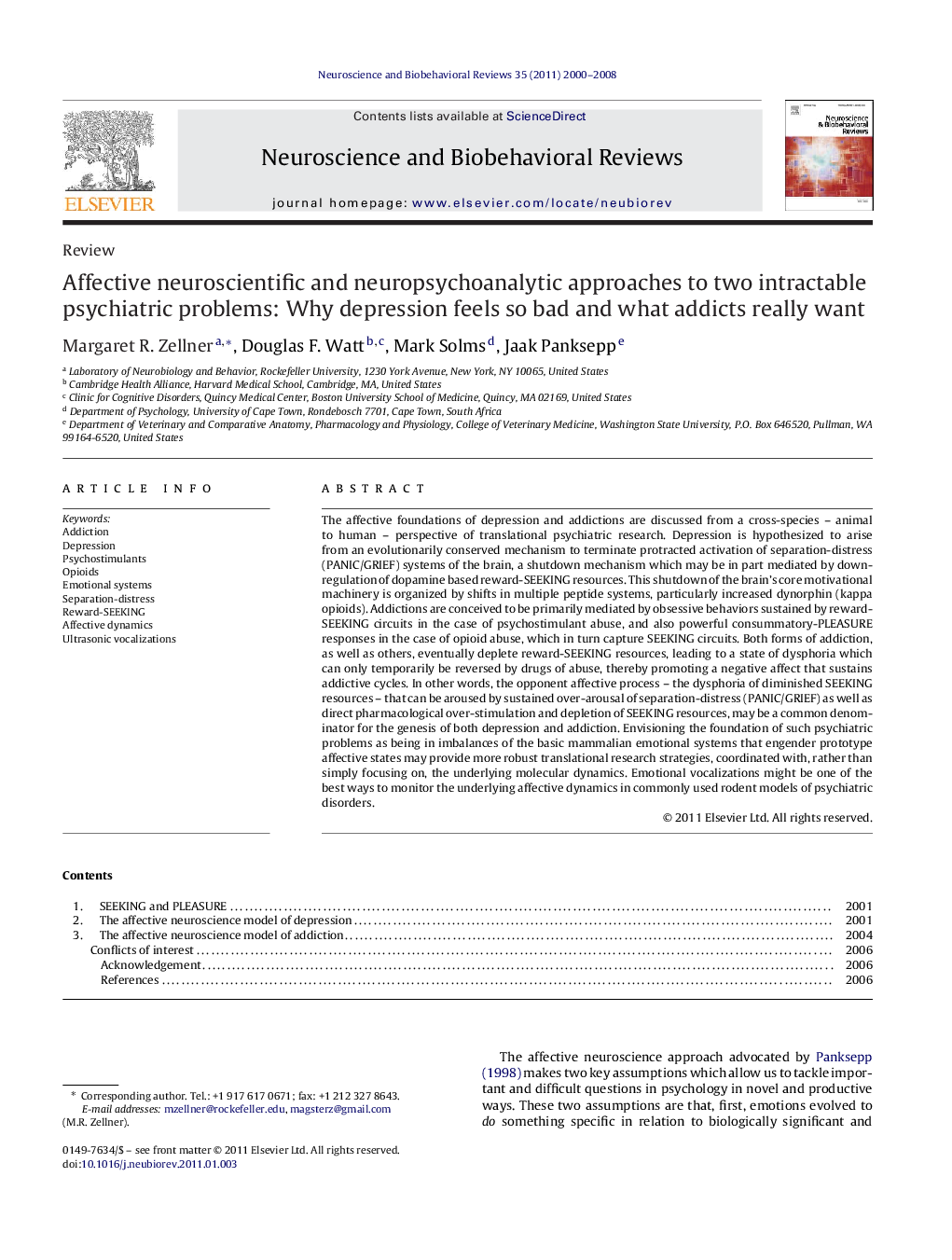| Article ID | Journal | Published Year | Pages | File Type |
|---|---|---|---|---|
| 937605 | Neuroscience & Biobehavioral Reviews | 2008 | 9 Pages |
The affective foundations of depression and addictions are discussed from a cross-species – animal to human – perspective of translational psychiatric research. Depression is hypothesized to arise from an evolutionarily conserved mechanism to terminate protracted activation of separation-distress (PANIC/GRIEF) systems of the brain, a shutdown mechanism which may be in part mediated by down-regulation of dopamine based reward-SEEKING resources. This shutdown of the brain's core motivational machinery is organized by shifts in multiple peptide systems, particularly increased dynorphin (kappa opioids). Addictions are conceived to be primarily mediated by obsessive behaviors sustained by reward-SEEKING circuits in the case of psychostimulant abuse, and also powerful consummatory-PLEASURE responses in the case of opioid abuse, which in turn capture SEEKING circuits. Both forms of addiction, as well as others, eventually deplete reward-SEEKING resources, leading to a state of dysphoria which can only temporarily be reversed by drugs of abuse, thereby promoting a negative affect that sustains addictive cycles. In other words, the opponent affective process – the dysphoria of diminished SEEKING resources – that can be aroused by sustained over-arousal of separation-distress (PANIC/GRIEF) as well as direct pharmacological over-stimulation and depletion of SEEKING resources, may be a common denominator for the genesis of both depression and addiction. Envisioning the foundation of such psychiatric problems as being in imbalances of the basic mammalian emotional systems that engender prototype affective states may provide more robust translational research strategies, coordinated with, rather than simply focusing on, the underlying molecular dynamics. Emotional vocalizations might be one of the best ways to monitor the underlying affective dynamics in commonly used rodent models of psychiatric disorders.
